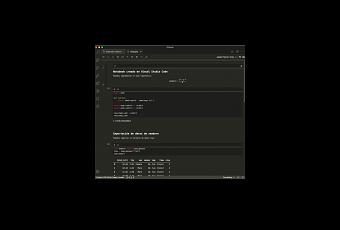

Also, because this is a preview, we will continue to improve the experience which includes making breaking changes. It’s not feature complete and we’ve enumerated some of the unfinished features at the bottom. This is an early preview which has the main goal of getting early feedback from real usage so we can make informed decisions as we continue to develop. It’s especially exciting to us because it includes a preview of PowerShell support! NET Jupyter Notebooks which are a powerful tool that combines documentation and the ability to execute and see the output of code all in the same file. NET Interactive (within a Jupyter environment) provides the ability to write. NET team shipped an exciting new preview of.

Visual Studio Code supports working with Jupyter Notebooks natively, as well as through Python code files.Public Preview of PowerShell Support in Jupyter Notebooks Jupyter (formerly IPython Notebook) is an open-source project that lets you easily combine Markdown text and executable Python source code on one canvas called a notebook. Working with Jupyter Notebooks in Visual Studio Code Tune in to learn how to supercharge your Jupyter Notebooks with VS Code. Visual Studio Code offers many great features for Data Scientists and Python developers alike, allowing you to explore and experiment on your data using the flexibility of Jupyter Notebooks combined with the power and productivity of VS Code. Notebook documents are both human-readable documents containing the analysis description and the results (figures, tables, etc.) as well as executable documents which can be run to perform data analysis. python) and rich text elements (paragraph, equations, figures, links, etc…). Jupyter Notebook documents (or “notebooks”, all lower case) are documents produced by the Jupyter Notebook App, which contain both computer code (e.g. For more information on our governance approach, please see our Governance Document. Jupyter is developed in the open on GitHub, through the consensus of the Jupyter community. Jupyter will always be 100% open-source software, free for all to use and released under the liberal terms of the modified BSD license. Project Jupyter is a non-profit, open-source project, born out of the IPython Project in 2014 as it evolved to support interactive data science and scientific computing across all programming languages.


 0 kommentar(er)
0 kommentar(er)
